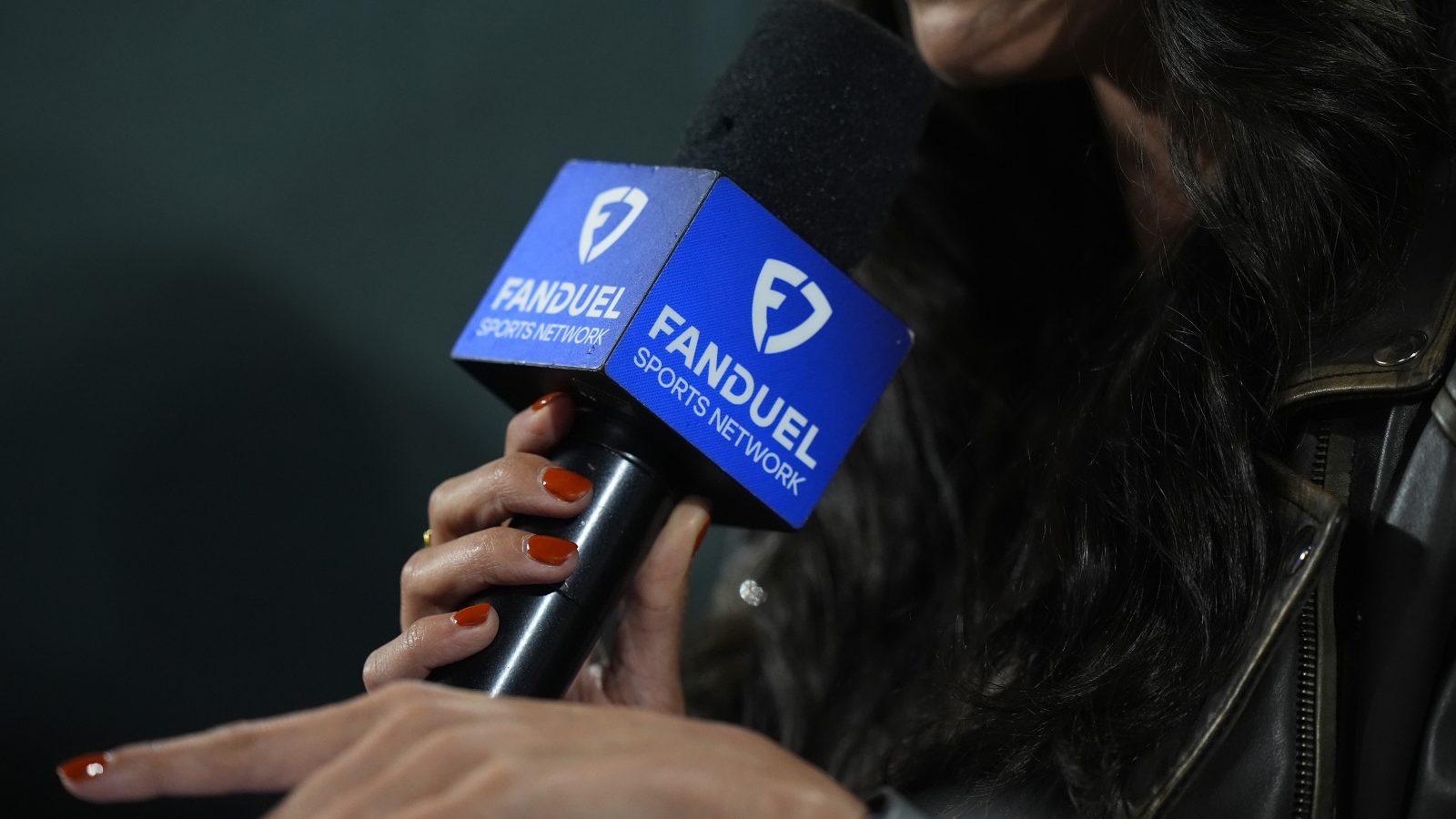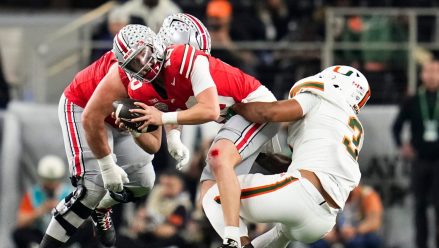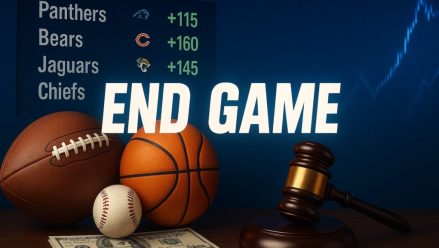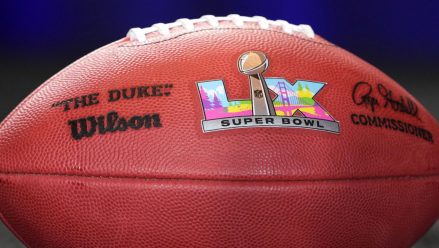When FanDuel CEO Amy Howe is asked about prediction markets, she seems to have something of a go-to line.
“Our North Star has not changed,” Howe tells InGame.
To her, that means balancing opening up new states with doing things “the right way.”
“We’re still very focused on opening up the remaining 50% of the U.S. that can’t bet legally on sportsbooks,” Howe says. “We spent a lot of time thinking about it: when we’re going to enter the space, how we do it. We want to be very thoughtful.
“We have, obviously, important relationships with state regulators – we’re in 24 different states today. And so it was important to us to be able to do this the right way and manage the important relationships we have in the 24 states that are currently legal.
“But at the same time, if there is an opportunity to participate in the remaining 50% and offer consumers a product, then we wanted to be able to do that the right way as well.”
Will FanDuel markets include sports?
The big question is whether the FanDuel-branded prediction market — made possible by a partnership with commodities giant CME — will ultimately offer bets on sports. FanDuel’s initial press release on the upcoming launch didn’t mention sports but didn’t rule them out as a possibility either.
Howe suggests that FanDuel’s steps on its prediction market deal have been made in a way that will allow the company to offer sports if the situation is right.
“We’ll give ourselves the flexibility to be able to pivot based on how we see the regulatory environment,” Howe says.
Behind the scenes, FanDuel’s work on the CME deal had been going on for a long time before the partnership was announced. Howe says the two businesses initially connected in January, the same month that Kalshi first offered sports event contracts.
So will the launch be coming soon? Howe is quiet on the timeline.
“The teams are doing all the hard work to make sure that we can develop the right product, and when we think the time is right to launch that, we’ll do that,” she says.
“But there’s obviously still a lot of regulatory uncertainty, and so we’re trying to make sure that we can navigate that.”
She added that choosing CME specifically as the company’s designated contract market partner would allow the company to be flexible in terms of what kind of markets it offers and where.
“Without getting into the details, part of why we selected CME is so that we could have the flexibility to decide what markets we want to launch in and with what products,” Howe says.
Regulators in Arizona, Ohio, Illinois, New York, and Michigan have warned licensees about getting involved with prediction markets, even telling operators that engagement with the product in another state or partnering with a company that offers them in another state could make a company unsuitable for a sportsbook license. FanDuel holds a sportsbook license in all five states.
CME has not yet partnered with any other companies for prediction market access or suggested it will offer its own site or app to allow customers to buy and sell event contracts. If the company does not partner with anyone else or offer its own platform, then its contracts may only be available for purchase in states where FanDuel wishes to offer them. However, it remains unclear whether regulators in legal sports betting states would still take action if the company offers sports contracts elsewhere.
Impact on sportsbook expansion
With all the talk about prediction markets, FanDuel’s sportsbook arguably has received less media attention than usual this year.
The rise of prediction markets and the operation of the sportsbook aren’t unconnected, though. Fears about prediction markets have contributed to a drop in the share price of FanDuel parent Flutter Entertainment — down 30% since late August — though bettor-friendly sports results and likely tax hikes in the UK, Flutter’s second-largest market, have played a part, too.
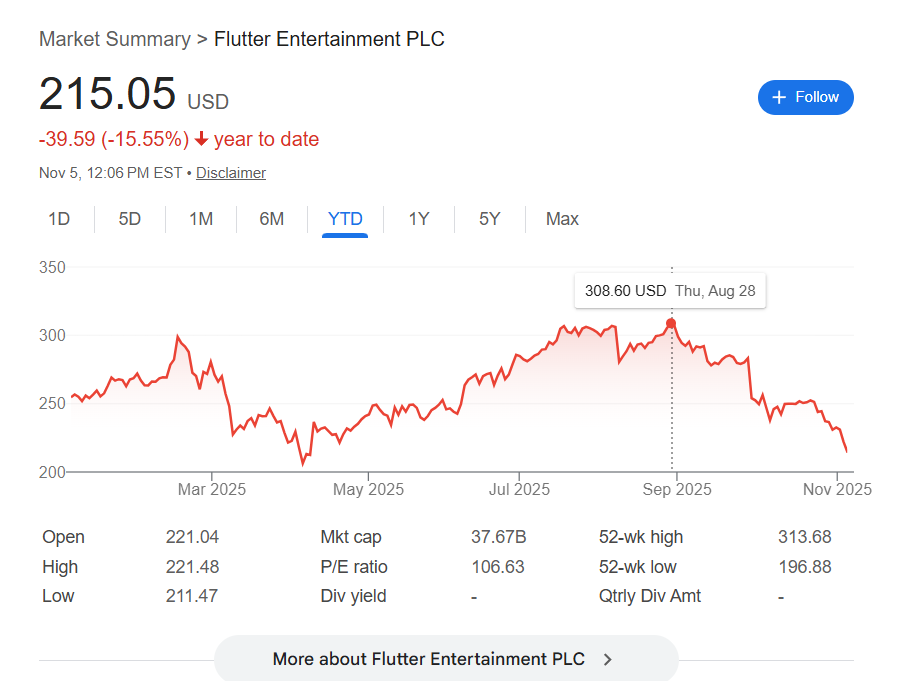
Howe also notes that the rise of prediction markets may encourage states to legalize sports betting by confronting them with the fact that people will wager on sports even without legalization.
“I think, to an extent, one of the potential benefits of the rise of prediction markets is that it actually puts more pressure on both the states that aren’t legal, but also the states that have legalized because they’re missing out on that revenue as well,” Howe says.
“So this will obviously play out. And we’ll see how that plays out between the states and federal rights. But hopefully that’s a net positive over time.”
Of the states that haven’t legalized yet, the biggest prize is California, where FanDuel backed a failed ballot measure to legalize sports betting in 2022 that was opposed by the state’s tribes. She says that any future legalization efforts involving FanDuel will make sure to center the goals of tribes.
“We have done a significant amount of very hard work to repair and rebuild our relationships with the tribes. We are cautiously quite optimistic that we will have a path to legalization in California, but to be clear, it will be done with and through the tribes, and so that’s really our focus right now is to make sure that we can find a model that works for them. Their primary objective is to make sure they are protecting tribal sovereignty for future generations, so that is our primary focus, and none of this changes that.
“We want to make sure that we safely open up the market with and through the tribes, and so we’ll continue to keep that front and center, but yes, we are cautiously optimistic that we will see a path to legalization in California.”
Among the states that have legalized, the one where Howe’s discussion of prediction markets putting pressure on legislators may be Illinois, where a per-wager tax came into force in July on top of an onerous progressive revenue tax. The tax starts at 25 cents per bet but rises to 50 cents after the first 20 million wagers in a year, a total that FanDuel easily clears.
“We are incredibly disappointed by what Illinois did,” Howe says. “It doesn’t make any sense because you’re penalizing a very casual user, which was why we decided to take action and pass [the tax] on.
“But I do think there’ll be an appropriate equilibrium over time.”
FanDuel is among the operators passing on the cost of the tax directly to customers with a surcharge, making customers pay an additional 50 cents on every bet they place. Howe said that the question of whether the surcharge is itself taxable has still not been settled.
“My understanding is it’s still playing out,” she said.
If it is taxable, then FanDuel’s tax bill on the surcharge alone could reach $30 million annually.
FanDuel’s ‘obligation’
But even in states that have made it tough to operate, Howe says FanDuel’s licenses are the most important thing. Again, she notes that FanDuel’s “north star hasn’t changed.”
“We take the obligation we have as a licensed operator in the 24 states that we compete in seriously,” Howe says.
“That is a very big deal and we need to protect that. Also, there’s a certain reputation that we are trying to uphold in the market with consumers, with leagues, with teams. And so at the end of the day, doing things the right way and knowing that we’re in this for the long game, we’re not trying to — over the first few weeks of the NFL — make the most from prediction markets.
“We’re going to do it the right way. So I think that’s at least the mindset and the culture that really drives our organization.”

